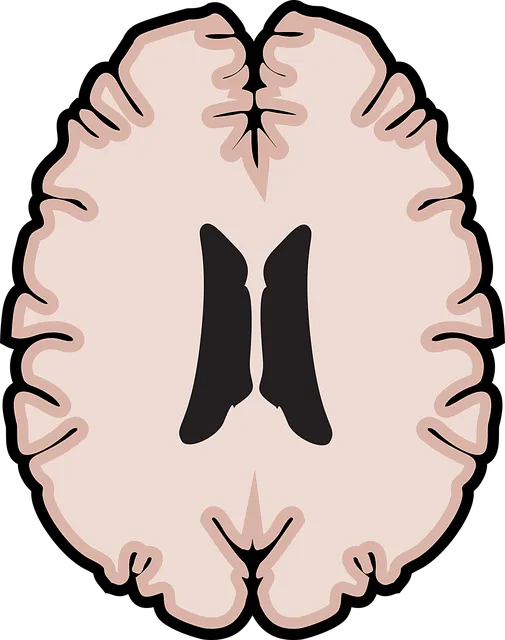Community outreach programs like those led by Littleton Kaiser Permanente bridge healthcare gaps for underserved communities, offering anxiety relief and coping skill development through workshops, confidential helplines (like the Littleton Kaiser Permanente mental health phone number), and tailored services. Targeting specific communities requires understanding their unique needs, including cultural, linguistic, and socioeconomic factors, fostering trust and open conversations about mental wellness. Effective communication strategies using accessible language, multiple channels, and collaborations with schools & community centers enhance engagement. The Littleton Kaiser Permanente mental health phone line has proven effective in breaking stigma, offering easy access to professionals who provide coping skills training and stress management techniques, significantly improving local residents' mental well-being. Measuring success through clear goals, engagement rates, and feedback ensures continuous innovation, responsiveness, and relevance to evolving community needs.
Community outreach programs play a pivotal role in enhancing access to essential services, particularly in mental health. This article explores their significance, focusing on strategies for successful implementation. We delve into identifying target communities, crafting compelling communication plans, and providing real-world insights through a case study of Littleton Kaiser Permanente’s phone support service. Additionally, we discuss measuring impact and fostering sustained engagement, highlighting the key components for effective outreach, especially in mental health initiatives, including the crucial Littleton Kaiser Permanente mental health phone number.
- Understanding Community Outreach Programs: Their Role and Impact
- Identifying Target Communities for Mental Health Initiatives
- Developing Effective Communication Strategies for Outreach
- Implementing Phone Support Services: A Case Study from Littleton Kaiser Permanente
- Measuring Success and Sustaining Community Engagement
Understanding Community Outreach Programs: Their Role and Impact

Community outreach programs play a pivotal role in fostering mental wellness within communities. These initiatives, often led by healthcare organizations like Littleton Kaiser Permanente, aim to bridge the gap between medical services and those who might not readily access them. By offering resources directly to community members, these programs promote anxiety relief and coping skills development. They serve as a powerful tool to enhance overall mental health, ensuring that support is accessible to all, regardless of geographical or socio-economic barriers.
Such outreach efforts can take various forms, from educational workshops in schools and public spaces to confidential helpline services. For instance, the Littleton Kaiser Permanente mental health phone number has proven invaluable, providing immediate support and guidance to individuals seeking assistance with anxiety relief and coping with life’s challenges. These programs not only cater to immediate needs but also empower community members with the knowledge and tools to maintain long-term mental wellness.
Identifying Target Communities for Mental Health Initiatives

Identifying the target communities for mental health initiatives is a strategic step that requires careful consideration. Organizations like Littleton Kaiser Permanente can play a pivotal role by understanding the unique needs and barriers within diverse populations. For instance, engaging with underserved or marginalized groups often presents distinct challenges, including cultural, linguistic, and socioeconomic factors. By recognizing these nuances, healthcare providers can tailor services to offer anxiety relief and confidence-boosting support that resonates with each community’s specific context.
For effective outreach, it’s essential to embrace cultural sensitivity in mental healthcare practice. This involves training staff to navigate diverse cultural backgrounds, traditions, and beliefs, ensuring that everyone feels comfortable accessing and benefiting from these services. Whether reaching out to new immigrants, ethnic minorities, or rural populations, a culturally competent approach can foster trust and encourage open conversations about mental well-being, ultimately improving the reach and impact of such initiatives.
Developing Effective Communication Strategies for Outreach

Effective communication is key to the success of any community outreach program, especially when addressing mental health concerns. Organizations like Littleton Kaiser Permanente play a vital role in promoting well-being through their dedicated phone lines for mental health support, ensuring that individuals can access help promptly. When designing an outreach strategy, it’s essential to consider the diverse needs and preferences of the target audience. Tailoring messages to resonate with different demographics can enhance engagement. For instance, using accessible language, incorporating cultural references, and offering multiple communication channels (such as phone, text, or online platforms) can make the initiative more inclusive.
For community outreach programs focused on mental health, a multi-faceted approach is beneficial. This may involve collaborating with local schools to implement Stress Management workshops, partnering with community centers to provide Trauma Support Services, and leveraging social media for awareness campaigns. By combining direct services, educational initiatives, and digital engagement, organizations can create a comprehensive safety net that caters to various mental health needs. A well-crafted communication strategy ensures that the right message reaches the right people at the right time, fostering a supportive environment for those seeking help.
Implementing Phone Support Services: A Case Study from Littleton Kaiser Permanente

Littleton Kaiser Permanente’s implementation of phone support services is a compelling case study showcasing how accessible resources can significantly impact community well-being. The program aimed to provide mental health support to individuals who may not have otherwise accessed care, particularly those facing barriers such as stigma or limited mobility. By offering a dedicated mental health phone number in Littleton, the healthcare provider ensured that coping skills development and stress management techniques were readily available to the local community.
This initiative focused on reducing the mental illness stigma by fostering open conversations about mental health challenges. Trained professionals offered guidance, resources, and non-judgmental support, empowering individuals to manage their well-being effectively. The success of this program highlights the potential for similar outreach efforts to create a more inclusive and supportive environment, where those struggling with mental health issues can find the help they need without facing societal barriers.
Measuring Success and Sustaining Community Engagement

Measuring success and maintaining community engagement are pivotal aspects of any community outreach program. To gauge effectiveness, organizations should define clear outcomes and metrics aligned with their goals. This could involve tracking participant numbers, engagement rates, and qualitative feedback through surveys or interviews. For instance, a mental health initiative might measure the number of individuals reaching out to the dedicated Littleton Kaiser Permanente phone line for support, or the increase in attendance at local Mindfulness Meditation sessions over time.
Sustaining community engagement requires ongoing innovation and responsiveness. Regularly reviewing program data can help identify trends, areas for improvement, and emerging needs within the community. By integrating feedback from participants and community leaders, organizations can adapt their services to offer targeted support like Trauma Support Services, ensuring that outreach programs remain relevant, impactful, and aligned with the evolving mental health landscape.
Community outreach programs, as demonstrated by Littleton Kaiser Permanente’s successful implementation of mental health phone support services, play a pivotal role in enhancing access to care. By identifying target communities and employing effective communication strategies, organizations like Littleton Kaiser Permanente can foster meaningful engagement and significantly impact overall well-being. Remember that measuring success and sustaining community involvement are essential for creating lasting positive change. For those seeking support, the Littleton Kaiser Permanente mental health phone number serves as a valuable resource, highlighting the power of such initiatives in reaching and assisting individuals in need.






